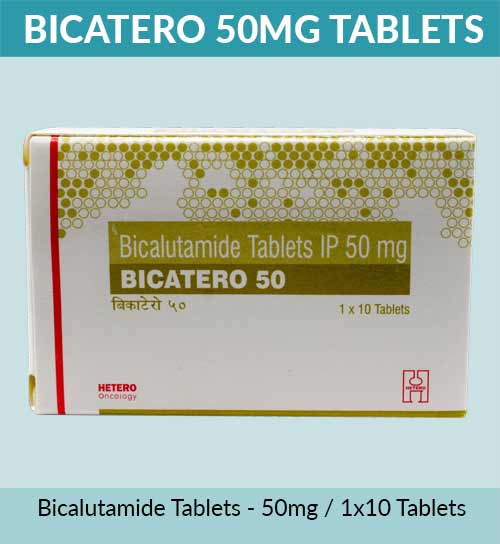Bicalutamide
Bicalutamide is a medication used in the treatment of prostate cancer. It belongs to a class of drugs known as anti-androgens.
Bicalutamide works by blocking the action of androgens, which are male hormones, particularly testosterone. Prostate cancer cells depend on androgens for growth and progression. By inhibiting the effects of androgens, bicalutamide helps to slow down the growth of prostate cancer cells and reduce the levels of prostate-specific antigen (PSA), a marker of prostate cancer.
The medication is usually taken orally in the form of tablets. It may be prescribed as a monotherapy for early-stage prostate cancer or as part of combination therapy for advanced or metastatic prostate cancer. The specific dosage and treatment regimen are determined by the healthcare provider based on the individual’s condition and response to therapy.
Common side effects of bicalutamide may include hot flashes, breast tenderness or enlargement, fatigue, and gastrointestinal symptoms. More serious side effects, such as liver problems or allergic reactions, can occur but are rare. Regular monitoring of liver function and other parameters may be recommended during treatment.
Bicalutamide should only be used under the guidance and prescription of a qualified healthcare professional experienced in the treatment of prostate cancer. It may interact with other medications, so it is important to inform the healthcare provider about all medications being taken, including over-the-counter drugs and supplements.
In summary, bicalutamide is a medication used in the treatment of prostate cancer. It blocks the effects of androgens to slow down the growth of prostate cancer cells. Regular monitoring and adherence to healthcare provider instructions are important during bicalutamide treatment.
Note – The brand names and product descriptions used on this site are for informational purposes only and are the property of their respective owners.


